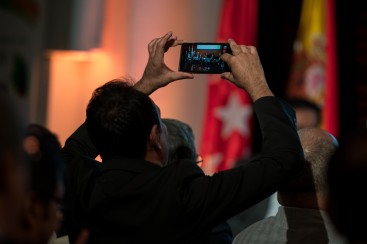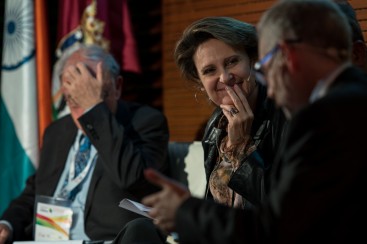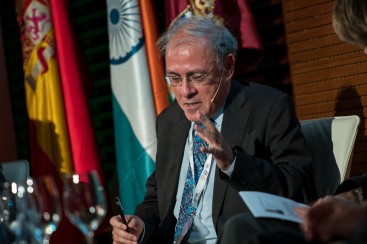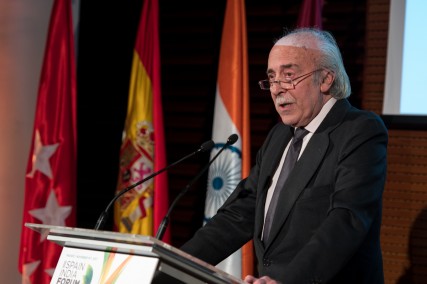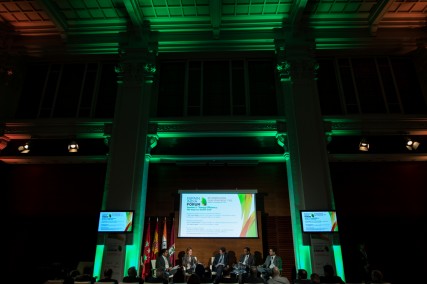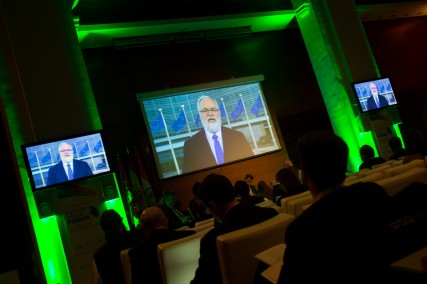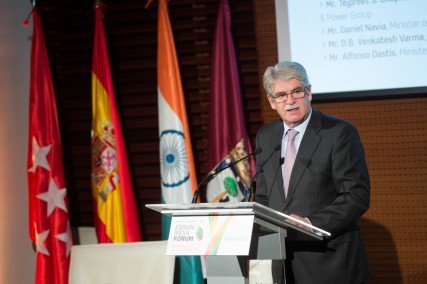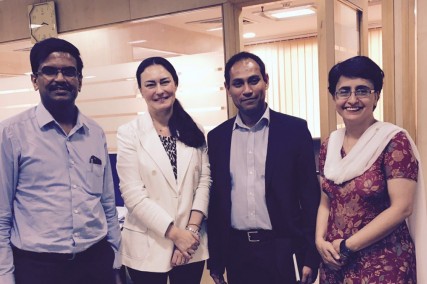The rise of renewable energies represents a series of demands and issues for the electrical grid. A country like India, which is as big as a continent and whose population lives in either large rural areas or megacities inhabited by of tens of millions, faces significant challenges regarding the integration of energy resources and transmission.
The II Spain India Forum attempted to shed some light on this situation during its fourth session, moderated by Blanca Losada, Chair of Futured and Chief Technology Officer at Gas Natural Fenosa. The panel also featured Juan Manuel Rodríguez, Manager of Red Eléctrica Española, José Ignacio Pérez Arriaga, a member of the MIT Energy Initiative and Center for Energy and Environmental Policy Research (CEEPR); Sachin Ram Mujumdar, Head of the 400kV Project at The Tata Power Company, and Suket Singhal, CEO of Secure Meters Limited.
The size of India's power system is hard to grasp from the point of view of a country like Spain; in fact, it needs to be considered more at the European scale. According to Juan Manuel Rodríguez, “the distance covered by the Indian energy system is like the distance from Cádiz to Prague. It is huge. In 2013, they managed to synchronise it nationwide. One nation, one grid, one frequency”.
Suket Singhal outlined the issues posed by such a gigantic system. There is limited interconnectivity between provinces and the wholesale market is not very liquid. Also, “they have to manage different load curves depending on the geography, and then there's power quality”, which can be affected by solar and wind power generation.
Renewable energies face yet another difficulty in India. As remarked by Sachin Ram Mujumdar, “between 70 and 75% of renewables are either in the South or the West of the country, but there's a lot of demand in the North that cannot be met due to limitations in transmission capacity”.
Megacities, in turn, have their own problems, according to the Head of the 400kV Project. “The availability for transmission of large amounts of electricity at different voltages is limited”. Cities such as Bombay have severe limitations in terms of access to electrification grids because of the sea and natural reserves. As for underground cables, the underground rail projects currently underway in the main Indian cities are competing for underground space. These metro networks are also going to need “a lot of power”.
Sachin Ram Mujumdar was more optimistic in terms of the replacement of combustion vehicles with electric ones: “Companies with many transformers can use them as charging stations. We have 400 in the Bombay area which can be easily fitted out to become charging points; this is a measure which can be implemented”.
Juan Manuel Rodríguez says companies’ main concerns are managing a safe system which is constantly changing and a climate change-dependent grid. The Red Eléctrica Española Manager used the European interconnection model as an example, since it allows for increased efficiency, competition between neighbouring systems and better integration of renewable energies.
Gallery
Excutive Summary
Dossier II Spain India Forum
Agenda II Spain India Forum
Press release II Spain India Forum
Personal Profiles
II Spain-India Forum introductory video
Video: Spain, world leader in renewable energy


